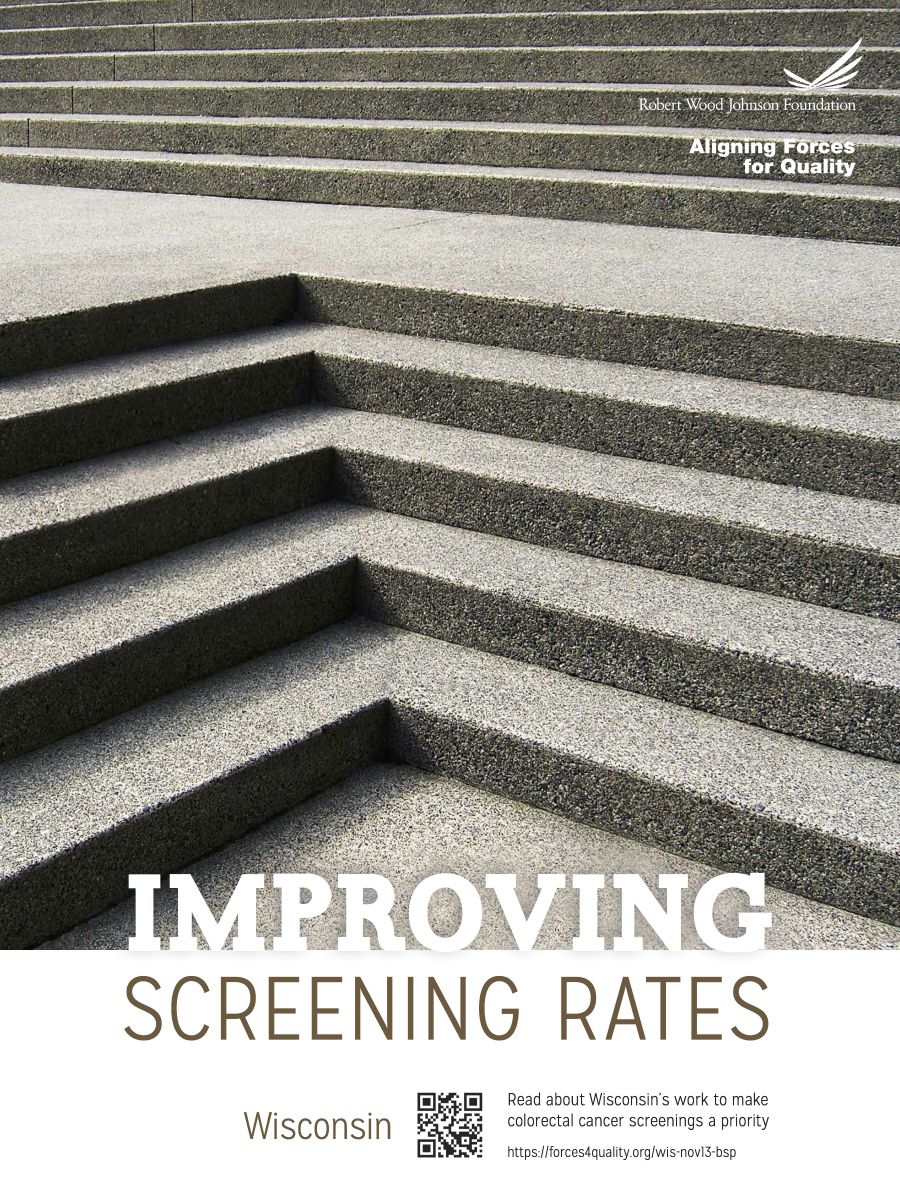Wisconsin: Setting Priorities
Colorectal cancer is the second leading cause of cancer-related deaths in the United States and the leading cause of cancer deaths among nonsmokers, according to the Centers for Disease Control and Prevention. Early detection is key to treating colorectal cancer, and screening tests offer a powerful tool for detect and successfully treat colorectal cancer early. Early detection is inexpensive and saves lives. If everyone age 50 years and older had a regular screening test, at least 60 percent of the deaths from this cancer could be avoided.
 The Wisconsin Collaborative for Healthcare Quality (WCHQ), leader of the AF4Q initiative in Wisconsin, has made colorectal cancer screenings a priority. Seventeen out of 21 WCHQ members have reached an improvement target of a 70 percent or higher screening rate. The ultimate goal is to achieve a 70 percent screening rate for all patients by December 2013, and WCHQ is well on its way.
The Wisconsin Collaborative for Healthcare Quality (WCHQ), leader of the AF4Q initiative in Wisconsin, has made colorectal cancer screenings a priority. Seventeen out of 21 WCHQ members have reached an improvement target of a 70 percent or higher screening rate. The ultimate goal is to achieve a 70 percent screening rate for all patients by December 2013, and WCHQ is well on its way.
WCHQ set the agenda in Wisconsin by looking at areas most ripe for improvement. Initially, when WCHQ was identifying quality goals, colorectal cancer screening was lagging. Some member organizations had not even attained a 50 percent screening rate. Said WCHQ Director of Strategic Partnerships Cindy Schlough, “If we’re going to focus on giving good care, why aren’t we doing it where it makes a huge impact for patients?” WCHQ then began the push for improvement.
After WCHQ members completed a commitment form to solidify their acceptance of screening rates as a problem area, the next step was to engage clinician leaders. Clinician leaders have played an essential role in advancing the WCHQ Colorectal Screening Project. A project team including a dozen physicians and nurses worked together over six months to select a set of proven best practices that include identifying eligible patients, redesigning clinic workflows, leveraging electronic medical records, improving patient physician communications, and educating patients on different screening options. The proven best practices were presented through a series of webinars led by two physicians from the colorectal cancer project team. An online toolkit also has been developed to provide a one-stop resource for real-world examples of clinic workflows, electronic medical record procedures, and patient education materials.
Physician Marilu Bintz, who served on the project team, believes the transparency of data through WCHQ is also vital. “The importance of that transparency is not about pointing fingers—the point is to look at people performing well and to create a dialogue about how to get better,” she said.
WCHQ continues to support clinics with additional resources as well as best practice and problem-solving conference calls. Clinics are encouraged to share their triumphs and challenges in increasing screening rates. Continuing to lead on colorectal cancer screening is yielding results in Wisconsin. By setting the agenda, WCHQ is showing a demonstrable impact.
